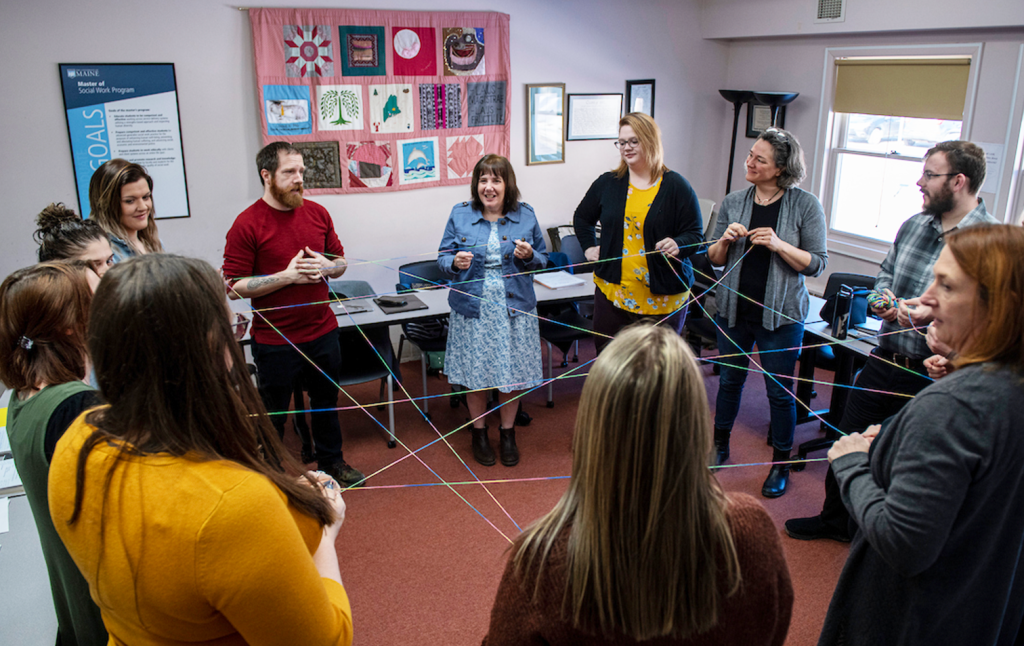School of Social Work

At the University of Maine School of Social Work, we prepare self-aware, ethically grounded baccalaureate and masters social workers committed to recognizing and dismantling systems of oppression and building liberation.
We educate at the Baccalaureate and Master’s level in an atmosphere of individualized learning, respect for individual rights, and a celebration of diversity. Rooted in social work values and ethics, our curriculum equips students with skills engage, assess, and intervene with individuals, families, group, communities, organizations, and institutions; frameworks for understanding the complex interplay of human behavior and the social environment; analytical capacities for crafting research and policy; and a commitment to improving the quality of life for people in Maine and globally.
Graduates of our programs go on to serve individuals and communities across the state and nation as clinicians, policy makers, researchers, and supervisors.
Explore School of Social Work

What is Social Work?
Social work is a profession focused on enhancing human wellbeing, ensuring the basic needs of all people are met, and advancing social justice. Among the helping professions, social work is unique for its attention to both individual challenges and the broader social systems and forces contributing to them and commitment to professional values and ethics. Social workers practice as advocates, behavioral health professionals, case managers, crisis workers, policy analysts, supervisors, and therapists; in child welfare, court systems, medical settings, and schools; and in homes, outpatient settings, and residential programs. Whether social workers practice at the generalist or specialist level, they serve many different populations and play a variety of roles in helping organizations and communities.
Why Social Work?
According to the U.S. Bureau of Labor Statistics (BLS), the employment of social workers is projected to grow 7% from 2023 to 2033, at twice the national average. This translates into roughly 67,300 additional openings per year. As of May 2023, Maine had the highest concentration of social work job opportunities in the U.S., with a mean annual wage of $68,345 for mental health and substance use social workers.
Bureau of Labor Statistics, U.S. Department of Labor, Occupational Outlook Handbook, 2023-33 & May 2023 State Occupational Employment and Wage Estimates: Maine
School of Social Work News

Upcoming MSW Program Information Sessions
Join us for an online session to learn more about our MSW program options!
For audio/telephone attendance only: Dial: 1.309.205.3325 or 1.312.626.6799 Enter Meeting ID: 856 9165 4896
New application deadlines for the 2026-2027 academic year!
For more information: https://umaine.edu/socialwork/graduate/ call 207.581.2389 or e-mail jennifer.crittenden@maine.edu.
Interested in beginning your social work education at the University of Maine?
We want to hear from you today!
Questions?
Email socialwork@maine.edu.
